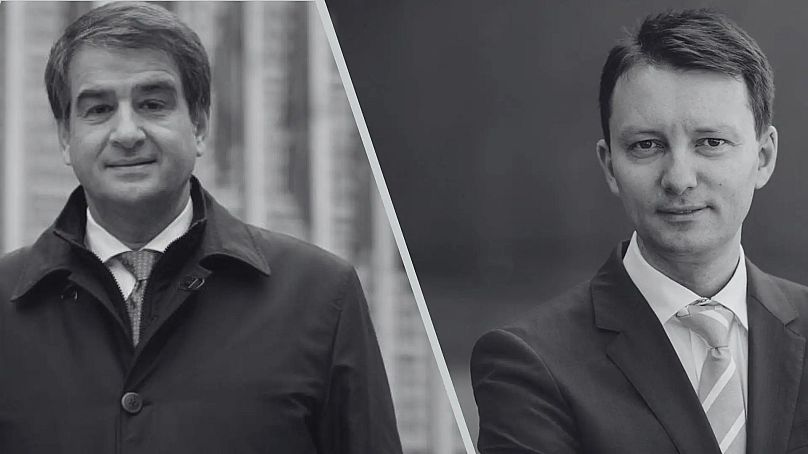This week's key events presented by Euronews’ defence and finance reporter, Paula Soler, and Euronews' health and food reporter, Marta Iraola Iribarren.
Key diary dates
- Monday 20 October : European Parliament — debate on the decision to impose a fine on Google: defending press and media freedom in the EU.
- Tuesday 21 October : 2026 Commission work programme Communication on the generational renewal in agriculture 2025 annual overview report on simplification, implementation, and enforcement
- Thursday 23 October : EU leaders meeting in Brussels to discuss Ukraine, the Middle East, European defence and security, competitiveness and twin transition, housing and migration.
In spotlight
The European Commission is set to unveil its 2026 work programme on Tuesday, outlining the new initiatives planned for next year. A draft document dated 14 October and seen by Euronews includes both fresh ideas and older proposals that were initially meant for 2025.
One of the initiatives postponed to 2026 is the European Biotech Act, which Commissioner Várhelyi had originally hoped to prepare by the end of this year. The Act will introduce measures to accelerate the journey of biotech products from the lab to factories — and ultimately to the market.
On health, the Commission will also present the Global Health Resilience Initiative, announced by President von der Leyen during her State of the Union speech last month.
Although the draft remains subject to change, it highlights key proposals aimed at boosting innovation and competitiveness, improving working conditions and equality rights, and addressing fragmentation within the EU’s single market.
In the first quarter of 2026, the EU executive will present a single market roadmap for 2028, setting out clear targets and deadlines to overcome barriers across various sectors, including finance, services, and energy.
A proposal for a “28th regime” is also expected early next year. This optional, harmonised EU legal framework is designed to make it easier for innovative companies to start up and operate across all member states.
More omnibus packages are also on the way, covering areas such as energy, taxation, and the simplification of defence procurement.
But it’s not all about new ideas — next year’s plan also includes reviews of existing laws that may require updates or performance checks. These include the Chips Act, the Animal Health Regulation, the Tobacco Control legislation, and the Fertilising Products Regulation, among others.
Finally, one of the most closely watched parts of the 2026 work programme will be the section on withdrawals. This part reveals which legislative files will end up in the Commission’s wastebasket — and which might be revived in a new form.
In late 2024, we saw attempts (some successful) to scrap the AI Liability Directive, the 2023 FiDA proposal, and the Equal Treatment Directive — the latter brought back to life earlier this year. So, get ready for another round of EU policy battles — popcorn optional.
Policy newsmakers
Fitto versus MEPs on the next MFF (2028-34)
The EU Commission is currently facing the question of whether or not to change the bloc's long-term budget proposal for after 2027. Since the EU executive proposed merging agricultural and regional funds into a single pot to be managed by national governments in July, criticism has been mounting from various quarters, including farmers, regions, member states and MEPs. The latter have even threatened to reject the proposal in November if changes are not made. “If the Commission ignores our demands, our members see a rejection as unavoidable,” lead MEP Sigfried Muresan said in a statement on Wednesday. Last Thursday, EU Commissioner Raffaele Fitto told regional representatives in Brussels that the EU executive was open to introducing some changes. However, later that day, a Commission spokesperson suggested the opposite. "At this stage, the Commission does not speculate on individual elements of the proposal or individual positions by the co-legislators," the statement said, adding that the institution is "engaged in constructive exchanges" with MEPs and member states.












